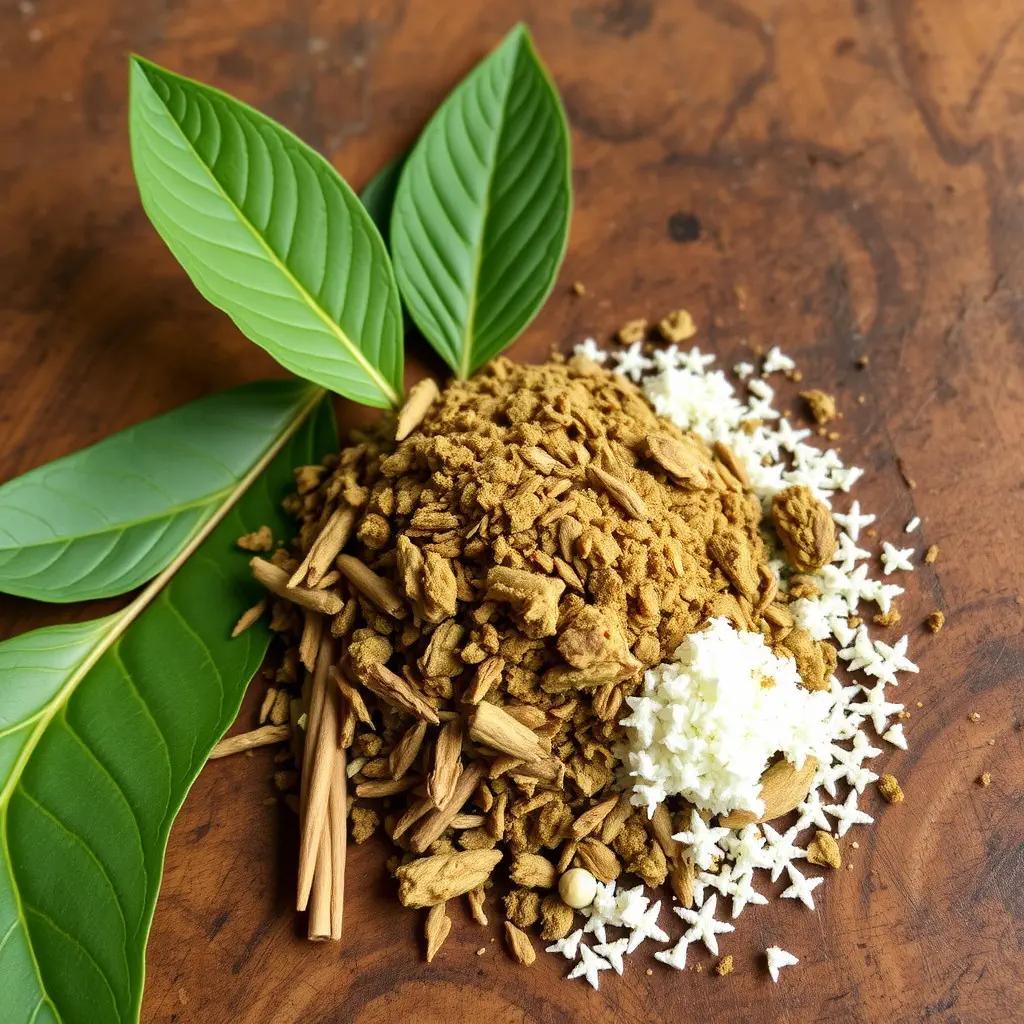As of 2023, Indiana's kratom law regulates the substance as a dietary supplement, requiring vendors to ensure product safety and accuracy in labeling. This approach aims to balance potential health benefits with consumer protection. Kratom, derived from the Mitragyna speciosa tree, has shown promise in preliminary studies for its effects on cardiovascular health due to its alkaloids, which may improve blood flow and circulation. However, the medical community advocates for more research to understand the long-term implications of kratom use on heart health. The Indiana kratom law reflects a careful balance between acknowledging the product's potential benefits and prioritizing safety. Users in Indiana are advised to consult healthcare professionals before using kratom and to stay informed about both scientific findings and legal updates regarding kratom use, especially given its impact on cardiovascular health. Compliance with Indiana's kratom law is essential for anyone considering this supplement, with a focus on safe dosing and strain selection to manage personal health objectives within the guidelines set forth by state legislation.
explore the intersection of herbal supplements and heart health through the lens of Kratom, a botanical subject to Indiana’s evolving legal framework. This article delves into how Kratom, under the guidance of Indiana’s legislative boundaries, may contribute to cardiovascular well-being. We will dissect the legal landscape surrounding Kratom in Indiana and its implications for heart health. Following this, we will examine Kratom’s potential effects on cardiovascular function from a scientific standpoint. Lastly, we will guide readers through the nuances of incorporating Kratom into a personalized heart-healthy regimen, considering both dosage and safety within the state’s regulations. Understanding the complexities of Indiana kratom law and its role in cardiovascular health is paramount for those exploring this natural supplement.
- Navigating Indiana's Kratom Legislation and Its Impact on Cardiovascular Health
- Understanding Kratom's Role in Supporting Heart Health: A Scientific Perspective
- Personalizing Your Heart-Healthy Routine with Kratom: Dosage, Strains, and Safety Considerations Under Indiana Law
Navigating Indiana's Kratom Legislation and Its Impact on Cardiovascular Health

In Indiana, the legislative stance on Kratom has been a subject of debate and evolution. The state’s approach to regulating Kratom, a plant from Southeast Asia whose leaves contain compounds that can have stimulant effects, is outlined in Indiana’s Kratom legislation. As of the knowledge cutoff in 2023, Kratom is not explicitly illegal in Indiana, but its sale and distribution are subject to regulations that require vendors to ensure products are free from adulterants and mislabeling. This legislative framework aims to protect public health while accommodating the growing interest in Kratom as a potential supplement for well-being, including cardiovascular health. Studies have been conducted to explore the effects of Kratom on the cardiovascular system, with some suggesting that certain alkaloids found in Kratom might offer benefits such as improved circulation and heart health. However, due to the lack of comprehensive research, the consensus within the medical community remains cautious, emphasizing the need for further scientific investigation into its long-term effects on the cardiovascular system. Users in Indiana, as elsewhere, should be aware of these legislative guidelines and the ongoing scientific discourse surrounding Kratom’s impact on heart health, particularly given the potential risks associated with its use, such as elevated heart rate or blood pressure, which could be detrimental to individuals with pre-existing cardiovascular conditions.
Understanding Kratom's Role in Supporting Heart Health: A Scientific Perspective

Kratom, a mitragynoid derived from the leaves of Mitragyna speciosa, has garnered attention for its potential impact on cardiovascular health. While the scientific community continues to explore its mechanisms of action, preliminary studies suggest that certain compounds within kratom may exert beneficial effects on the heart. For instance, alkaloids such as 7-hydroxymitragynine and mitragynine have been observed to influence vascular responses and may contribute to improved blood flow and circulation. These findings are of particular interest given the complex nature of cardiovascular diseases, which remain a leading cause of mortality worldwide.
In the context of legal considerations, it’s notable that the state of Indiana has established specific regulations regarding kratom consumption through its laws. The Indiana kratom law, which came into effect in 2019, regulates the sale and distribution of kratom products, classifying them as dietary supplements. This legislative approach reflects a cautious optimism about the potential benefits of kratom while ensuring that consumer safety is a priority. As research progresses, the scientific perspective on kratom’s role in supporting heart health may evolve, potentially influencing future regulations and guidelines. It is imperative for individuals interested in using kratom to consult with healthcare professionals and stay informed about the latest scientific findings and legal statutes regarding its use.
Personalizing Your Heart-Healthy Routine with Kratom: Dosage, Strains, and Safety Considerations Under Indiana Law

When considering incorporating kratom into a heart-healthy routine, it’s crucial to navigate the landscape of Indiana’s regulations on the substance. As per Indiana kratom law, kratom is a legally available supplement with specific guidelines governing its sale and use. Personalizing your regimen to include kratom for cardiovascular health requires careful selection of both dosage and strains, as well as adherence to safety measures to ensure both legality and personal well-being.
Dosage is a key factor in safely using kratom; the American Kratom Association provides guidelines suggesting moderate use with precise measurements. It’s important to start with a lower dosage to assess your body’s response before considering an increase, always within the bounds of what Indiana kratom law allows. Strain selection also plays a pivotal role; certain strains like Maeng Da are reported to have stimulant-like effects, which might be beneficial for some aspects of cardiovascular health, such as increased energy and mood enhancement that can positively influence heart health. However, the most suitable strain for an individual will depend on personal tolerance and specific health goals, and it’s always recommended to consult with a healthcare provider before making any changes to your routine. Safety considerations are paramount; users must be aware of potential interactions with medications, adverse effects, and the importance of not exceeding recommended doses to avoid negative health consequences. Understanding and complying with Indiana kratom law is essential for consumers looking to incorporate kratom into their heart-healthy practices. Always prioritize safety and legal compliance when exploring the potential benefits of kratom for cardiovascular health.
In conclusion, the relationship between Kratom and cardiovascular health presents a complex narrative that intertwines scientific research with legal considerations. As outlined in “Navigating Indiana’s Kratom Legislation and Its Impact on Cardiovascular Health,” understanding the local regulations, such as those in Indiana, is crucial for safe and compliant use. The scientific community’s exploration into Kratom’s role in supporting heart health, detailed in “Understanding Kratom’s Role in Supporting Heart Health: A Scientific Perspective,” suggests potential benefits, though more research is warranted. For those interested in incorporating Kratom into their heart-healthy routines, “Personalizing Your Heart-Healthy Routine with Kratom: Dosage, Strains, and Safety Considerations Under Indiana Law” provides valuable guidance on dosage, strain selection, and adherence to state laws. It is clear that while Kratom may offer support for cardiovascular health, personal responsibility and a thorough understanding of both the science and legal frameworks are essential. Residents of Indiana and beyond should stay informed about the evolving landscape of Kratom’s legality and scientific findings to make educated decisions regarding their health.






